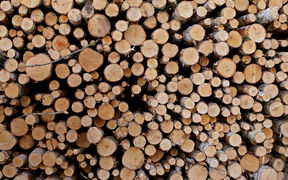Not a drop wasted – AaltoCell™ fibres utilised in a new circular economy project

The dilute solutions produced as side streams of the food industry contain valuable nutrients. However, the capture of these nutrients using current technologies are not profitable; instead, they are lumped together with wastewater and their value is lost.
Now researchers from the University of Helsinki, Aalto University and Häme University of Applied Sciences (HAMK) have received a €240 000 grant from the Finnish Cultural Foundation for the Etsivät project, the purpose of which is to utilise side streams more efficiently. The project utilises Axolot Solutions Finland Oy's version of the technique known as electroflotation. It is based on electrolysis (the dispersion of chemical substances by using an electric current) and, unlike other similar methods, it generates no oxygen.
The nutrient capture will be enhanced by using microsize fibre grades produced with the AaltoCell™ technique developed by Professor Olli Dahl at Aalto University. These increase the amount of foam generated in the process, which enables more efficient capture of the valuable substances that need to be separated out. These cellulose fibres are completely safe and suitable for food products, and their presence does not interfere with the recovery of the valuable substances or the use of this fraction in new contexts.
Researchers believe that there are numerous uses for this new set of techniques in a society aiming towards a circular economy. For example, the dairy industry uses the same equipment for the manufacture of cream and buttermilk. When this equipment is cleaned at regular intervals, wash water is produced. Small concentrations of cream and buttermilk dissolve into this water, and these could be used in different contexts, such as for fodder, algae culture media or cosmetics products.
What if the world’s cattle munched on Finnish wood?
A new manufacturing method will open entirely new markets for microcrystalline cellulose. It could be used, for example, to enrich animal fodder.

Read more news

Significant donation to boost pavement engineering research and education
Companies and associations in the field have donated €400,000 to the School of Engineering.
Design strengthens industrial competitiveness – human-centered factory work at the core
Factory work is undergoing a transformation: new technologies and artificial intelligence are changing the content and roles of work. Aalto University’s Department of Design is studying this change from a human-centered perspective in the HiFive project.
Learning to slow down: cold-water swimming benefits explored in new study
Swimming in cold water offers a temporal slowdown, promoting stress management and mental clarity that lingers long after the experience, says research from Finland.






